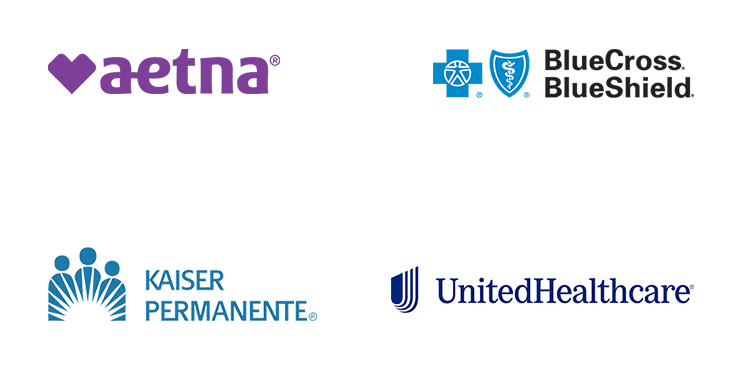
The global healthcare ecosystem is undergoing a seismic shift, driven by the dual pressures of advancing clinical innovation and escalating operational costs. In this complex environment, healthcare providers—from large hospital networks to specialized clinics—are increasingly recognizing the critical role of strategic partnerships. Healthcare outsourcing to the Philippines has emerged as a cornerstone strategy, enabling organizations to streamline non-clinical operations, enhance patient engagement, and reinvest savings into their core mission: delivering exceptional patient care. By entrusting key business processes to specialized providers in the region, healthcare organizations can tap into a deep well of talent, technology, and operational excellence, thereby creating a more resilient and patient-centric healthcare system.
The country has cultivated a world-class oustourcing industry with a significant specialization in the healthcare sector. This is not merely about cost reduction; it is about accessing a workforce that is both highly skilled and deeply empathetic—a crucial combination in healthcare. For providers grappling with administrative burdens, staffing shortages, and the need to modernize their technology infrastructure, healthcare outsourcing to the Philippines offers a proven solution. It allows them to offload functions such as medical billing, claims processing, and patient scheduling, freeing up their clinical staff to focus on what they do best: diagnosing, treating, and caring for patients.
Compliance and data security are paramount in healthcare. The stringent requirements of regulations like the Health Insurance Portability and Accountability Act (HIPAA) demand a level of expertise and investment that can be challenging for many healthcare organizations to maintain. Contact centers that specialize in healthcare have made this a core competency. They have built secure, HIPAA-compliant facilities, implemented robust data protection protocols, and trained their teams extensively on the nuances of patient privacy and data security. This focus on compliance provides healthcare organizations with the peace of mind that their patients’ sensitive information is protected by the highest international standards.
The adoption of digital health technologies, from electronic health records (EHR) to telehealth platforms, is revolutionizing how care is delivered. However, managing this technology can be a significant challenge. By outsourcing to the Philippines, healthcare providers can leverage the technical expertise of BPO partners to manage their IT infrastructure, provide technical support to both patients and staff, and optimize their use of digital health tools. This technological partnership accelerates an organization’s digital transformation journey, enabling them to deliver more efficient, accessible, and effective care.
The goal of any healthcare organization is to improve patient outcomes. Healthcare outsourcing to the Philippines directly supports this goal by creating a more efficient, responsive, and patient-focused operational backbone. When administrative tasks are handled seamlessly, when patient inquiries are answered promptly and with compassion, and when clinical staff are freed from bureaucratic burdens, the entire system functions more effectively. This allows for a greater focus on preventative care, chronic disease management, and the overall well-being of the patient population, creating a healthier future for all.
WHY THE PHILIPPINES IS THE PREMIER DESTINATION FOR HEALTHCARE OUTSOURCING
The country has earned global recognition as a premier destination for healthcare BPO services, a distinction built on a unique combination of factors that are ideally suited to the exacting demands of the healthcare industry.
A Workforce with Clinical Expertise and Compassionate Care
The Philippines produces a large number of healthcare professionals each year, including registered nurses, medical technologists, and allied health graduates. Many of these highly trained individuals choose to build their careers in the healthcare service provider sector, bringing a level of clinical knowledge and patient-centric thinking that is unmatched in the industry. This is not just about processing claims or entering data; it is about understanding the clinical context, recognizing the importance of accuracy, and approaching every task with the empathy and professionalism that healthcare demands. For healthcare organizations, this means access to a workforce that truly understands the mission and values of healthcare.
Exceptional English Proficiency and Communication Skills
Clear, accurate communication is critical in healthcare, where misunderstandings can have serious consequences. The nation is known for its exceptionally high level of English proficiency, with a neutral accent that is easily understood by patients and providers in English-speaking markets. This linguistic capability, combined with a strong cultural emphasis on respectful and empathetic communication, makes Filipino call center professionals ideally suited for patient-facing roles such as appointment scheduling, insurance verification, and telehealth support. Patients feel heard and understood, which is the foundation of a positive healthcare experience.
Unmatched Cost Savings Without Compromising Quality
For healthcare organizations operating on tight margins, cost efficiency is a critical concern. Healthcare outsourcing to the Philippines offers a compelling value proposition, with labor costs that are significantly lower than in North America, Europe, or Australia. Healthcare providers can achieve operational cost reductions of 50-70% by outsourcing functions such as medical billing, coding, and transcription. Significantly, these cost reductions are realized without compromising on quality. The Filipino workforce is highly productive, well-educated, and committed to excellence, ensuring that healthcare organizations receive world-class service at a fraction of the cost.
A Mature Healthcare BPO Ecosystem with Specialized Expertise
The country has been a leader in the global outsourcing industry for over two decades, and within this broader ecosystem, a specialized healthcare BPO sector has flourished. This sector includes providers with deep expertise in specific areas such as revenue cycle management, medical coding (ICD-10, CPT, HCPCS), HIPAA compliance, and healthcare IT support. This specialization means that healthcare organizations can find partners with the exact expertise they need, whether it’s optimizing their RCM operations, managing their EHR system, or providing clinical documentation improvement (CDI) services.
Robust Regulatory Compliance and Data Security Infrastructure
Healthcare data is among the most sensitive and highly regulated in the world. The Philippines has recognized this and has built a robust infrastructure for data security and regulatory compliance. Leading healthcare outsourcing firms are HIPAA-compliant and hold multiple international security certifications, including ISO 27001 and SOC 2. They have invested in secure, access-controlled facilities, implemented advanced data encryption and monitoring systems, and conduct rigorous, ongoing training for all staff on data privacy and security. This focus on compliance provides healthcare organizations with the assurance that their patients’ protected health information (PHI) is safeguarded by the highest international standards.
Strategic Time Zone Advantage for 24/7 Healthcare Support
Healthcare is a 24/7 industry, and patients need support at all hours of the day and night. The country’s time zone (UTC+8) provides excellent coverage for Asia-Pacific markets and allows for seamless 24/7 operations when coordinated with teams in other regions. For healthcare organizations, this means that patient inquiries, appointment scheduling, and technical support can be provided around the clock, ensuring that patients receive the help they need, whenever they need it. This round-the-clock capability is a critical differentiator in an industry where timely support can significantly impact patient satisfaction and health outcomes.
SUCCESS STORIES: IMPROVING PATIENT CARE AND EFFICIENCY WITH PHILIPPINE HEALTHCARE BPO
Mid-Sized US Regional Hospital Network
A regional hospital network in the American Midwest was facing significant challenges with its revenue cycle management, including rising claim denial rates and a growing backlog of accounts receivable. The network chose to outsource to the Philippines, partnering with a specialized healthcare BPO in Alabang, Muntinlupa. The team, composed of certified medical coders and billing specialists, took over the end-to-end RCM process, from charge entry and coding to claims submission and denial management. Within 12 months, the team reduced the claim denial rate by 45% and decreased the average accounts receivable days from 65 to 38. This dramatic improvement in cash flow allowed the hospital network to invest in new diagnostic imaging equipment and expand its community wellness programs.
Australian Digital Health Platform
A fast-growing Australian telehealth platform needed to provide 24/7 technical and clinical support to its rapidly expanding user base of patients and physicians. The company partnered with a call center in Iloilo City, a rising tech hub in the Philippines, to build a dedicated team of nurses and IT support specialists. The local team provided round-the-clock support via chat, phone, and video, assisting patients with virtual consultations and helping physicians navigate the platform. The Philippine team’s compassionate and technically proficient support earned a 98% patient satisfaction rating and was instrumental in the platform’s successful nationwide rollout, making healthcare more accessible to thousands of Australians in remote and rural areas.
Industry Services Companies Outsourcing to the Philippines

HEALTHCARE OUTSOURCING TO THE PHILIPPINES: A PRESCRIPTION FOR A HEALTHIER FUTURE
The healthcare industry is navigating a period of profound transformation, marked by the imperative to improve patient outcomes, manage costs, and adapt to a rapidly evolving technological and regulatory landscape. In this demanding environment, healthcare outsourcing to the Philippines has emerged as a strategic imperative for providers seeking to build a more efficient, resilient, and patient-centric organization. By partnering with specialized BPO providers in the country, healthcare organizations can optimize their non-clinical operations and rededicate their resources to the delivery of world-class medical care.
KEY TRENDS REDEFINING HEALTHCARE OUTSOURCING IN THE PHILIPPINES
Healthcare outsourcing to the Philippines is being shaped by several transformative trends. The healthcare outsourcing sector is being reshaped by several powerful trends that are creating new opportunities for innovation and efficiency:
The Rise of Telehealth and Virtual Care Delivery
The widespread adoption of telehealth and virtual care has fundamentally altered how healthcare is delivered. The Philippines has become a key hub for supporting these new care models, with BPO providers offering a range of services from virtual assistant support for physicians to remote patient monitoring and technical support for patients using telehealth platforms. This expertise allows healthcare organizations to scale their virtual care offerings rapidly and provide a seamless, high-quality experience for patients and providers alike.
The Growing Importance of Healthcare Data Analytics
Data is the new lifeblood of healthcare. From electronic health records to wearable devices, healthcare organizations are generating vast amounts of data that hold the key to improving patient outcomes and operational efficiency. BPO providers in the country with expertise in healthcare data analytics are helping organizations unlock the value of this data. They offer services such as population health analysis, predictive modeling for disease risk, and revenue cycle optimization, enabling providers to make more informed, data-driven decisions.
The Shift to Value-Based Care
The transition from a fee-for-service to a value-based care model requires a fundamental shift in how healthcare organizations operate. Success in a value-based world depends on the ability to manage the health of a population, coordinate care across different settings, and demonstrate improved outcomes. BPO providers in the country are supporting this transition by offering services such as care coordination, patient outreach for preventative screenings, and quality reporting, helping organizations thrive in the new value-based landscape.
The Integration of AI and Robotic Process Automation (RPA)
Artificial intelligence and robotic process automation are automating a wide range of administrative tasks in healthcare, from medical coding and billing to appointment scheduling and insurance verification. BPO providers in the country are at the forefront of implementing these technologies, creating significant efficiencies for their healthcare clients. By automating repetitive, rules-based tasks, AI and RPA free up human staff to focus on more complex, patient-facing activities, improving both efficiency and the quality of care.
No Cost. No Obligation. No Strings Attached.
Explore the Opportunities — Talk to Us Today!
THE TRANSFORMATIVE IMPACT OF PHILIPPINE BPO ON HEALTHCARE REVENUE CYCLE MANAGEMENT
Revenue cycle management (RCM) is the financial backbone of any healthcare organization, encompassing the entire process from patient registration and insurance verification to medical coding, claims submission, payment posting, and denial management. Inefficiencies in the revenue cycle can lead to significant financial losses, cash flow problems, and administrative burdens. BPO providers in the country have become indispensable partners for healthcare organizations seeking to optimize their RCM operations and improve their financial health.
Medical Coding Excellence: Accuracy and Compliance
Medical coding is a highly specialized skill that requires a deep understanding of medical terminology, anatomy, and the complex coding systems (ICD-10, CPT, HCPCS) used to translate clinical diagnoses and procedures into billable codes. The Philippines has cultivated a large pool of certified medical coders, many of whom hold credentials such as Certified Professional Coder (CPC) or Certified Coding Specialist (CCS). These highly trained professionals ensure that medical services are coded accurately and in compliance with payer requirements, which is critical for maximizing reimbursement and minimizing claim denials. By outsourcing to the Philippines, healthcare organizations can access this specialized expertise without the significant investment required to build and maintain an in-house coding team.
Claims Management and Denial Reduction
The submission and management of insurance claims is a complex and time-consuming process, with a high rate of initial claim denials due to coding errors, missing information, or payer-specific requirements. BPO providers in the country specialize in end-to-end claims management, from ensuring that claims are clean and complete before submission to proactively managing denials and appeals. Their expertise in payer rules and regulations, combined with sophisticated analytics to identify denial trends, allows them to significantly reduce denial rates and accelerate the collection of payments. This improved claims performance has a direct and measurable impact on a healthcare organization’s bottom line.
Accounts Receivable Management and Cash Flow Optimization
A healthy cash flow is essential for the financial stability of any healthcare organization. However, many providers struggle with high accounts receivable (A/R) days and a backlog of outstanding claims. BPO providers in the country offer comprehensive A/R management services, including patient billing, payment posting, follow-up on unpaid claims, and patient collections. Their systematic and persistent approach to A/R management helps healthcare organizations reduce their A/R days, improve their cash flow, and minimize bad debt write-offs. This financial stability allows providers to invest in new equipment, expand services, and improve the overall quality of care.
RCM Analytics and Performance Improvement
Data-driven decision-making is critical for optimizing RCM performance. BPO providers in the country offer advanced RCM analytics services, providing healthcare organizations with detailed insights into their revenue cycle performance. This includes tracking key performance indicators (KPIs) such as days in A/R, claim denial rates, net collection rates, and cost-to-collect. By analyzing this data, providers can identify bottlenecks, inefficiencies, and opportunities for improvement, enabling them to continuously refine their RCM processes and maximize their financial performance. This analytical capability is a key differentiator for healthcare outsourcing to the Philippines partners.
CRITICAL CHALLENGES IN HEALTHCARE: THE PHILIPPINE SOLUTION
Strategic healthcare outsourcing to the Philippines partnerships address these challenges effectively. The healthcare industry faces a unique and formidable set of challenges, from navigating a labyrinth of regulations to managing the immense responsibility of patient data. A strategic partnership with a specialized BPO provider in the nation offers a powerful and effective solution to these critical issues.
Ensuring Ironclad HIPAA Compliance and Data Security
The Health Insurance Portability and Accountability Act (HIPAA) in the United States, along with similar data privacy laws globally, imposes strict rules on the handling of protected health information (PHI). For any healthcare organization, maintaining compliance is a non-negotiable, high-stakes requirement. BPO providers in the country that specialize in healthcare have made HIPAA compliance a cornerstone of their operations. They invest in secure, access-controlled facilities, conduct rigorous, ongoing training for all staff on HIPAA regulations, and implement advanced technical safeguards such as end-to-end data encryption and sophisticated intrusion detection systems. This unwavering focus on security and compliance allows healthcare providers to outsource to the Philippines with the confidence that their patients’ data is protected by the highest international standards.
Addressing the Chronic Shortage of Healthcare Professionals
Many countries are facing a severe and growing shortage of healthcare professionals, from nurses and medical assistants to administrative staff. This talent shortage puts immense pressure on healthcare organizations and can impact the quality of patient care. The Philippines has a large and well-educated talent pool, including a significant number of licensed nurses and other healthcare professionals who choose to build their careers in the BPO industry. By tapping into this talent pool, healthcare organizations can fill critical roles in areas such as clinical documentation, patient support, and care coordination, alleviating the strain on their in-house teams and ensuring that patients receive the timely support they need.
Managing the High Cost of Healthcare Delivery
The cost of delivering healthcare continues to rise, putting financial pressure on both providers and patients. Healthcare outsourcing to the Philippines offers a powerful lever for cost containment. By outsourcing non-clinical functions, healthcare organizations can significantly reduce their operational expenses, often by 50-70%. These savings can be reinvested into direct patient care, new medical technologies, and facility upgrades, creating a more financially sustainable and innovative healthcare organization. This cost-effectiveness is achieved without sacrificing quality, thanks to the high productivity and expertise of the Filipino workforce.
Improving the Patient Experience in a Consumer-Driven World
Today’s patients are more informed and have higher expectations than ever before. They expect a seamless, convenient, and compassionate healthcare experience. The Filipino culture is renowned for its warmth, empathy, and strong service orientation. This cultural trait is a major asset in healthcare, where patient interactions are often sensitive and emotionally charged. BPO professionals in the archipelago are skilled at providing empathetic and patient-centered support, whether they are scheduling an appointment, explaining a complex medical bill, or following up with a patient after a hospital stay. This focus on the patient experience can significantly improve patient satisfaction and loyalty.
ENSURING PATIENT PRIVACY AND DATA SECURITY IN HEALTHCARE OUTSOURCING TO THE PHILIPPINES
In the healthcare industry, where the protection of patient privacy and the security of sensitive health information are paramount, the decision to outsource must be made with the utmost care and due diligence. The Philippines has established itself as a trusted and secure destination for healthcare outsourcing, with a comprehensive framework of regulations, certifications, and best practices that meet the most stringent international standards.
HIPAA Compliance: A Non-Negotiable Foundation
The Health Insurance Portability and Accountability Act (HIPAA) is the cornerstone of patient privacy protection in the United States, and its requirements extend to any business associate that handles protected health information (PHI) on behalf of a covered entity. BPO providers in the country that serve US healthcare clients are rigorously trained and certified in HIPAA compliance. This includes implementing comprehensive administrative, physical, and technical safeguards to protect PHI, conducting regular risk assessments, and maintaining detailed documentation of all compliance activities. By partnering with a HIPAA-compliant provider in the Philippines, healthcare organizations can be confident that their outsourcing operations meet the strict requirements of US law.
ISO 27001 and Information Security Management Systems (ISMS)
ISO 27001 is the international standard for information security management, and it represents the gold standard for organizations that handle sensitive data. Many healthcare BPO providers in the country are certified to ISO 27001, demonstrating their commitment to maintaining a comprehensive, risk-based approach to information security. This certification involves the implementation of a wide range of security controls, from access management and network security to incident response and business continuity planning. For healthcare organizations, partnering with an ISO 27001-certified provider offers the highest level of assurance that their data is protected by world-class security practices.
SOC 2 Compliance and Third-Party Audits
Service Organization Control (SOC) 2 is an auditing standard developed by the American Institute of CPAs (AICPA) that evaluates the controls at a service organization relevant to security, availability, processing integrity, confidentiality, and privacy. Many healthcare BPO providers in the country undergo regular SOC 2 audits by independent third-party auditors, providing their clients with an objective assessment of their security and compliance posture. These audit reports offer healthcare organizations transparency and assurance that their BPO partner is maintaining the highest standards of security and operational integrity.
Advanced Technical Safeguards and Encryption
In addition to organizational and procedural safeguards, healthcare BPO providers in the country implement advanced technical safeguards to protect patient data. This includes end-to-end encryption of data in transit and at rest, multi-factor authentication for all system access, intrusion detection and prevention systems, and continuous security monitoring. These technical controls, combined with regular vulnerability assessments and penetration testing, create a multi-layered defense that protects against both external cyber threats and internal security risks. This robust technical infrastructure is a critical component of a secure healthcare outsourcing to the Philippines partnership.
Comprehensive Training and a Culture of Security
Technology and processes are important, but the human element is often the most critical factor in data security. Healthcare BPO providers in the country invest heavily in comprehensive, ongoing security training for all employees. This includes training on HIPAA regulations, data handling best practices, phishing awareness, and incident response procedures. Beyond formal training, leading providers cultivate a culture of security awareness, where every employee understands the critical importance of protecting patient data and takes personal responsibility for maintaining the highest standards of security and compliance. This culture of security is the foundation of a trustworthy and reliable outsourcing partnership.
STRATEGIC BENEFITS OF HEALTHCARE OUTSOURCING TO THE PHILIPPINES
For healthcare organizations, a strategic outsourcing partnership with a provider in the archipelago delivers a range of benefits that directly support the core mission of improving patient health and well-being:
Enhanced Focus on Core Clinical Competencies
By offloading administrative and non-clinical tasks to a trusted partner, healthcare organizations can free up their most valuable resource: the time and expertise of their clinical staff. When doctors, nurses, and other clinicians are not bogged down with paperwork, billing inquiries, and appointment scheduling, they can dedicate their full attention to patient care. This enhanced focus on core clinical competencies leads to better diagnoses, more effective treatment plans, and improved patient outcomes.
Access to Specialized Expertise and Technology
The healthcare industry is becoming increasingly specialized, with new technologies and care models emerging at a rapid pace. It is challenging for any single organization to maintain expertise in all of these areas. By outsourcing to the Philippines, healthcare providers can tap into a vast ecosystem of specialized expertise, from certified medical coders and data analysts to telehealth platform specialists and AI developers. This on-demand access to specialized talent and technology allows organizations to innovate and adapt more quickly in a changing healthcare landscape.
Improved Operational Efficiency and Scalability
Healthcare is a dynamic industry with fluctuating demand. A public health crisis, a change in insurance plans, or the opening of a new facility can all lead to a sudden surge in patient volume and administrative workload. BPO providers in the country offer the operational elasticity to manage these fluctuations seamlessly. They can quickly scale teams up or down as needed, ensuring that the healthcare organization can maintain a high level of service and efficiency, regardless of the circumstances. This scalability is a critical component of building a resilient and agile healthcare organization.
Healthcare outsourcing to the Philippines is a proven strategy. Healthcare outsourcing to the Philippines is a strategic decision that empowers healthcare organizations to navigate the complexities of the modern healthcare landscape, enhance the patient experience, and ultimately, deliver better health outcomes. It is a partnership that creates a stronger, more efficient, and more patient-centric healthcare system for the future.
THE PHILIPPINE ADVANTAGE IN HEALTHCARE OUTSOURCING
The Philippines blends clinical know-how with service DNA. Teams often pair certified coders (CPC, CCS), billers, and RCM analysts with licensed nurses and allied health professionals who understand care pathways, payer rules, ICD-10/CPT/HCPCS, and EHR workflows. That mix shortens onboarding, raises first-pass claim rates, and turns patient access, scheduling, prior auth, and contact center work into clinically aware conversations rather than script reading. Add neutral, fluent English, culturally warm communication, and true 24/7 coverage, and providers see faster appointment turns, higher patient satisfaction, and measurable improvements across denials, days in A/R, and cost-to-collect.
Compliance and continuity are built in. Leading Philippine partners operate HIPAA-hardened, ISO 27001–aligned, SOC 2–audited environments with least-privilege access, MFA, encryption in transit/at rest, SIEM monitoring, and auditable change control. Mature playbooks for RCM, CDI, coding audits, quality reporting, and telehealth support sit alongside EHR expertise (Epic/Cerner/Meditech), interoperability skills (HL7/FHIR), and automation at scale (RPA/AI for eligibility, charge capture, and denial analytics). The result is elastic, outcomes-tied capacity you can spin up for seasonal surges, new service lines, or market expansions—unlocking savings to reinvest in clinicians, community programs, and patient outcomes.
Healthcare Outsourcing to the Philippines
 The Philippines, with its strong healthcare education system, is an ideal outsourcing destination for the healthcare industry. The country offers a wealth of well-trained professionals, including nurses and medical technicians, who bring both medical knowledge and customer service expertise. This combination is critical for healthcare support services such as medical transcription, billing, and patient care coordination. Filipino workers are known for their compassionate approach, an essential trait in healthcare, ensuring that patient interactions are handled with empathy and understanding. Their proficiency in English and familiarity with Western healthcare systems makes them well-suited for serving international patients and healthcare providers. Outsourcing to the Philippines allows healthcare organizations to benefit from cost-effective solutions without compromising on the quality of patient care and support. By leveraging the specialized skills and compassionate approach of Filipino professionals, healthcare organizations can enhance their service delivery, improve patient satisfaction, and focus on critical healthcare services.
The Philippines, with its strong healthcare education system, is an ideal outsourcing destination for the healthcare industry. The country offers a wealth of well-trained professionals, including nurses and medical technicians, who bring both medical knowledge and customer service expertise. This combination is critical for healthcare support services such as medical transcription, billing, and patient care coordination. Filipino workers are known for their compassionate approach, an essential trait in healthcare, ensuring that patient interactions are handled with empathy and understanding. Their proficiency in English and familiarity with Western healthcare systems makes them well-suited for serving international patients and healthcare providers. Outsourcing to the Philippines allows healthcare organizations to benefit from cost-effective solutions without compromising on the quality of patient care and support. By leveraging the specialized skills and compassionate approach of Filipino professionals, healthcare organizations can enhance their service delivery, improve patient satisfaction, and focus on critical healthcare services.





